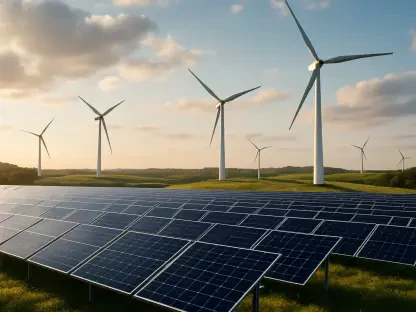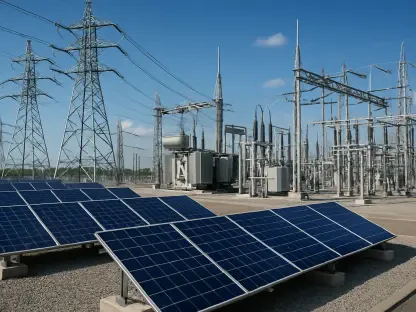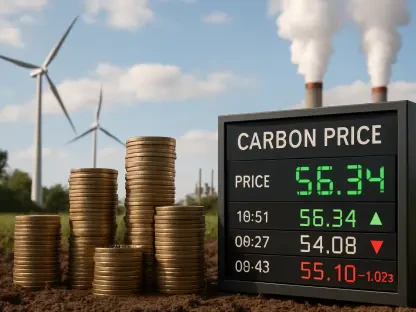In a groundbreaking endeavor, a new recycling manufacturing facility is set to open in Lodi, California, by the end of the third quarter. This facility, made possible through a collaboration between the Carton Council, Elof Hansson USA Inc., and the Upcycling Group, aims to revolutionize the recycling process for post-consumer food and beverage cartons by transforming them into sustainable and durable building materials. The initiative not only supports regional recycling efforts but also responds to the growing demand for eco-friendly construction materials. This innovative approach embodies a significant step towards a more sustainable future.
Innovative Recycling Process
Transforming Cartons into Building Materials
The core of the facility’s revolutionary approach lies in its unique manufacturing process that converts used gable top and aseptic cartons into building materials. Shredding these cartons and bonding them into large sheets using high pressure and heat treatment drives the process. What’s most remarkable is that this method eliminates the need for water, formaldehyde glues, and other hazardous chemicals, which are commonly used in traditional recycling processes. This environmentally friendly approach not only reduces the carbon footprint but also addresses various environmental concerns associated with conventional methods.
Furthermore, the facility’s technology capitalizes on the high-quality fiber content in food and beverage cartons. By minimizing waste and optimizing resources, it creates products that outperform traditional building materials in sustainability. The result is various boards used in roofing and wallboard applications, which are produced with a significantly lower environmental impact. This step towards sustainability marks a new era in the construction industry, where eco-friendly alternatives are becoming increasingly vital.
Lower Carbon Footprint and Increased Efficiency
The facility’s operation promises a significant reduction in carbon emissions compared to conventional building materials. Jan Rayman, CEO of the Upcycling Group, highlighted the manifold environmental benefits, citing avoidance of mining, deforestation, and water contamination. By leveraging the existing materials and transforming them into valuable resources, the facility dramatically reduces the need for new raw materials. This method not only supports conservation efforts but also offers economic advantages by reducing production costs.
As the system aims for peak efficiency, it seeks to recycle approximately 750 tons of food and beverage cartons each month. The anticipated output stands as a testament to the facility’s commitment to sustainability and efficiency. Additionally, employing roughly 15 individuals, the facility contributes to local economic growth while emphasizing green practices. Materials for the recycling process will primarily be sourced from California and the West Coast, underscoring the facility’s regional support and impact.
Broader Impact on Recycling and Construction
Expanding California’s Recycling Efforts
California’s recycling landscape is set to expand significantly with this facility’s introduction. Jason Pelz from the Carton Council emphasizes the importance of creating a regional end market for recycled cartons. By keeping these materials out of landfills and in continual use, the facility contributes to a circular economy model that sees waste materials repurposed rather than discarded. This aligns perfectly with California’s ambitious environmental goals and bolsters the state’s recycling infrastructure.
Creating a robust market for recycled cartons addresses a key challenge in recycling systems: the end-use application of materials. By providing a practical and sustainable use for recycled cartons, this facility fills a crucial gap in the recycling chain, ensuring materials are efficiently repurposed. This systemic change encourages increased recycling participation among consumers and businesses, driving a culture of sustainability that extends beyond the facility itself.
Contributions to Modern Construction Needs
A pioneering recycling manufacturing facility is slated to open in Lodi, California, by the end of the third quarter. Through a partnership involving the Carton Council, Elof Hansson USA Inc., and the Upcycling Group, this new plant aims to revolutionize the recycling of post-consumer food and beverage cartons. By converting these cartons into sustainable and durable building materials, the facility addresses rising demands for eco-friendly construction options.
This initiative supports local recycling efforts and highlights an innovative approach to waste management. It’s part of a broader movement towards sustainability, showcasing how industry collaboration can drive significant environmental change. By transforming waste into valuable resources, the new facility in Lodi sets a precedent for future recycling projects. This endeavor represents a crucial step towards a greener future, emphasizing the importance of recycling in achieving long-term environmental goals. The partnership and its outcomes reflect a commitment to developing sustainable solutions and advancing regional recycling programs.









